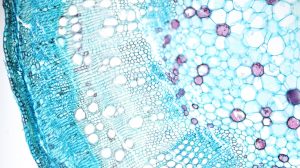Affinity chromatography
(Science: investigation) a technique of analytical chemistry used to separate and purify a biological molecule from a mixture, based on the attraction of the molecule of interest to a particular ligand which has been previously attached to a solid, inert substance.
The mixture is passed through a column containing the ligand attached to the stationary substance, so that the molecule of interest stays within the column while the rest of the mixture continues through to the end. Then, a different chemical is flushed through the column to detach the molecule from the ligand and bring it out separately from the rest of the mixture.
Dictionary > Affinity chromatography
You will also like...

Cell Biology
The cell is defined as the fundamental, functional unit of life. Some organisms are comprised of only one cell whereas o..

A Balanced Diet – Minerals and Proteins
Proteins and minerals can be derived from various dietary sources. They are essential for the proper growth and developm..

Lights’ Effect on Growth
This tutorial elaborates on the effect of light on plant growth. It describes how different plants require different amo..

Freshwater Communities & Lentic Waters
Lentic or still water communities can vary greatly in appearance -- from a small temporary puddle to a large lake. The s..

Takahē (Porphyrio hochstetteri)
Meet the colorful takahē, an extremely rare flightless bird. Find out more about its unique features and why they matte..

Plant Metabolism
Plants are responsible for incredible feats of molecular transformation. Plant processes, such as photosynthesis, photop..

